
Present Simple Tense Affirmative, Negative, Interrogative English
English Present Simple Tense; Affirmative, Negative, Interrogative Affirmative Negative Interrogative I am a doctor. I am not a doctor. Am I a doctor? You are an engineer. You are not an engineer. Are you an engineer? He is at home. He is not at home. Is he at home? She is my sister. She is not my sister. Is she my sister? It is a dog. It is not a dog. Is it a dog? We are friends. We are not.

Present Simple Tense, Affirmative, Negative, and Interrogative Examples
An example for noun sentences: Alice was the prettiest girl in the class. Simple Past Tense Grammar Rules. Affirmative Sentences: You can directly use the second form of the verb for the subjects I, You, We, They, He, She, and It. If you are going to make noun sentences, the auxiliary verb "were" for You, We, and They subjects; You should also use the auxiliary verb "was" for the.
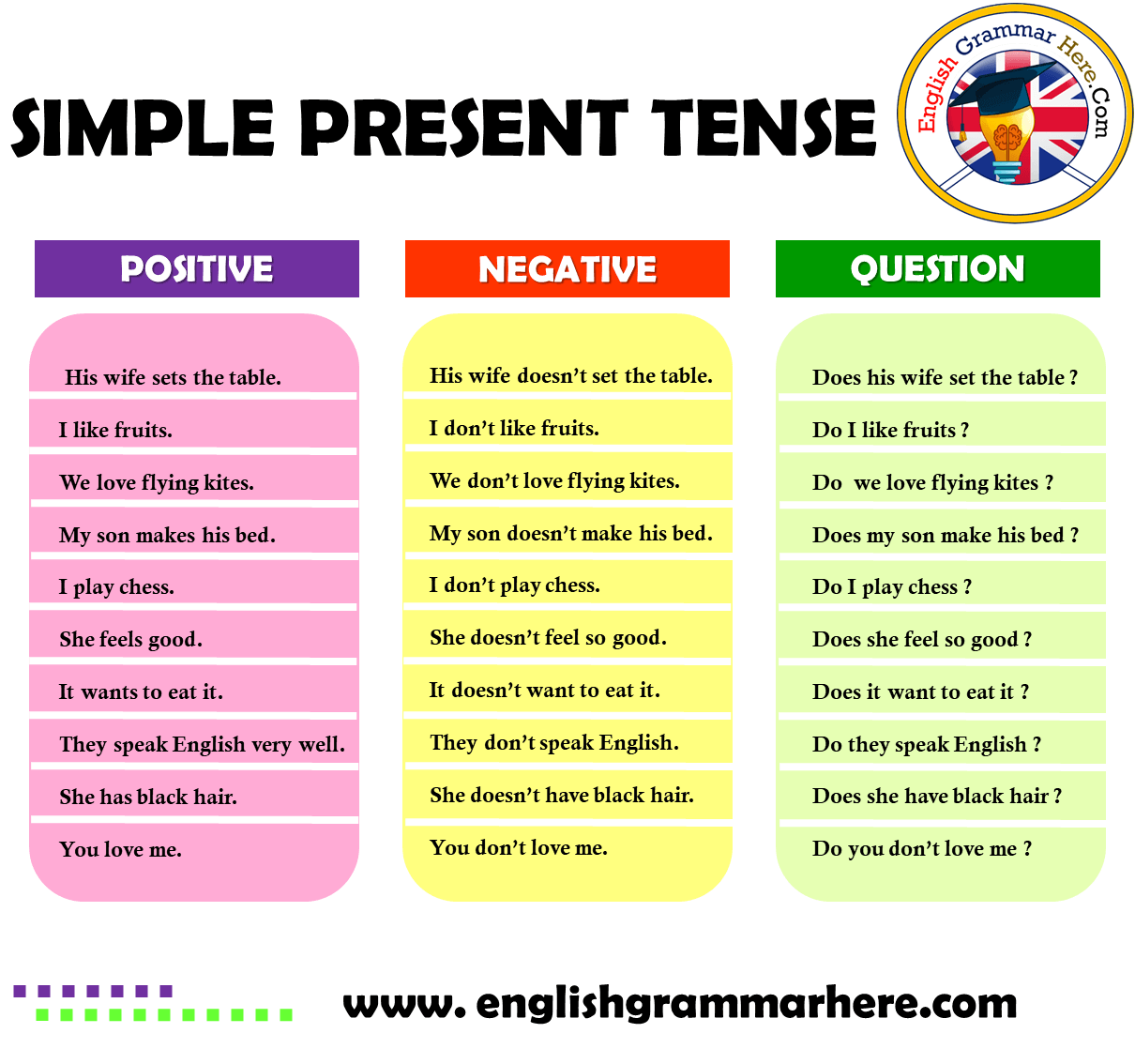
La phrase interrogative au présent simple et au prétérit simple
In this topic, you will learn the difference between the past simple and the past continuous in the affirmative, negative and interrogative form, and describe actions that took place in your life. At the same time, you will be able to talk and write about your last holiday and contrast finished actions, mention the actions that were in progress.
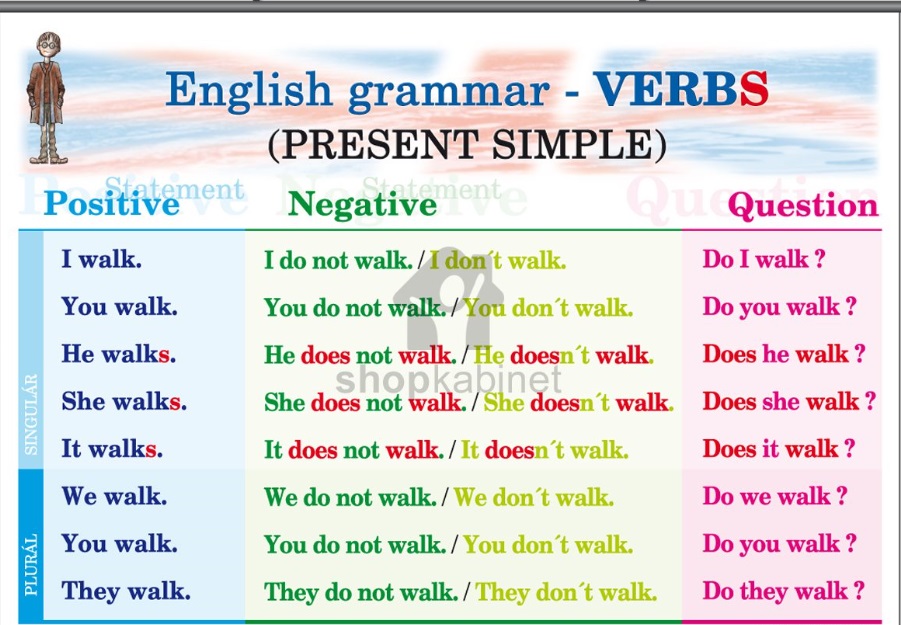
English Blog for 1°C Present Simple (Affirmative, Negative and
In linguistics and grammar, affirmation (abbreviated AFF) and negation (NEG) are ways in which grammar encodes positive and negative polarity into verb phrases, clauses, or other utterances.An affirmative (positive) form is used to express the validity or truth of a basic assertion, while a negative form expresses its falsity. For example, the affirmative sentence "Jane is here" asserts that.

Exposure Academy Affirmative, Negative and Interrogative Sentences in
As you can guess, yes/no interrogative sentences are questions where the answer is either yes or no. The rest of the information, such as the subject and action, is known, but the speaker is requesting either an affirmative or negative response. Yes/no questions always start with either the verb be or an auxiliary verb, such as do, have, can.
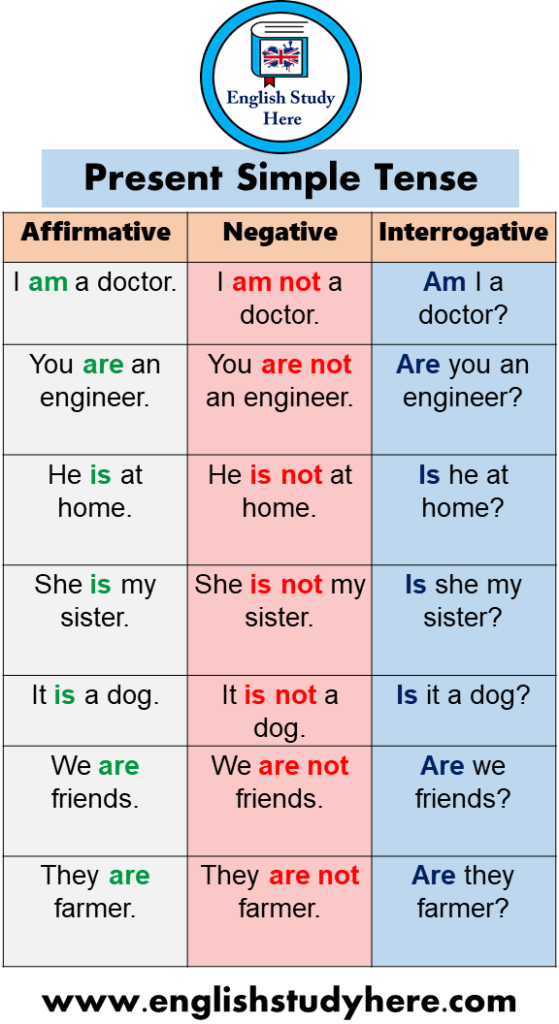
21 Present Simple Tense Examples, Affirmative, Negative, Interrogative
Forming the third person singular Most of the time, the simple present tense is the same as the verb's infinitive (aka base) form. The third person singular is used when the subject is neither the speaker nor the person being addressed and is a singular noun or pronoun (e.g., "he," "she," "it"). To form the third person singular in the simple present tense, "-s" is usually.
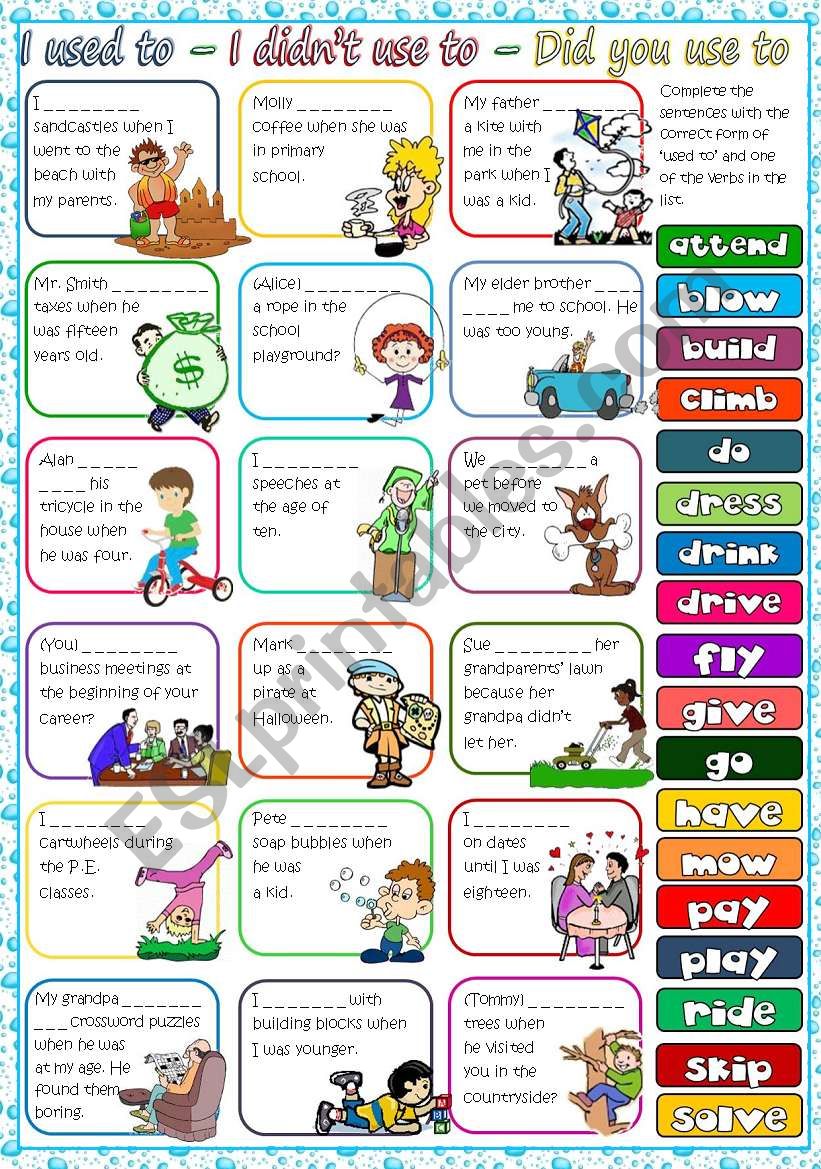
Used to *affirmativenegativeinterrogative* (B&W and KEY included
#pnst#english#shyam_sir#
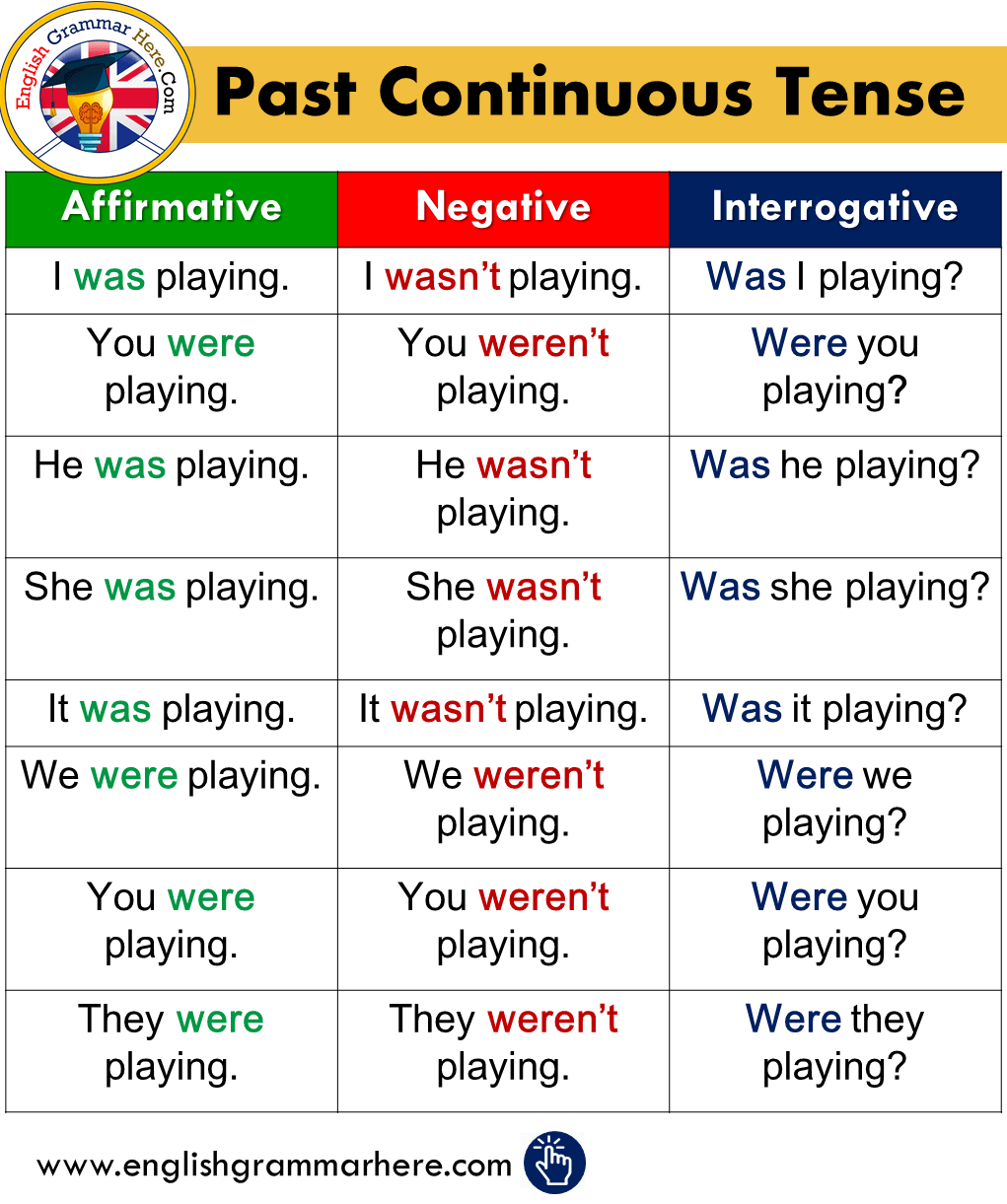
Past Continuous Tense Affirmative, Negative, Interrogative English
Examples of Affirmative and Negative Sentences. A sentence Opens in new window can be classified as to whether it states a fact or situation that is, or a fact or situation that is not.. An AFFIRMATIVE SENTENCE states a fact or situation that is—it affirms the information.. For example: India is a country in South Asia. She works at the bookstore. He liked to eat dumplings.
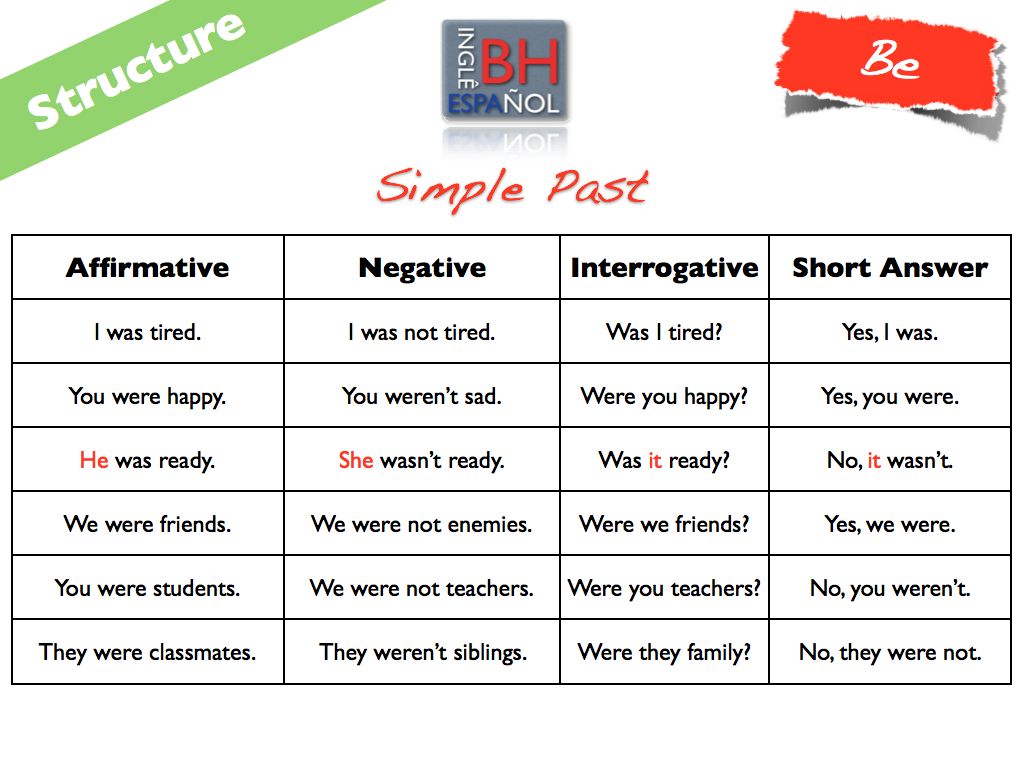
English Grammar 12 Tense Rules, Formula Chart With
Negative: Present Simple: I don't have a car. Present Continuous: You are not playing football now. Present Perfect: They haven't been there. Present Perfect Continuous: I haven't been living here. Past Simple: I didn't live in London. Past Continuous: I wasn't playing. Past perfect: He had not worked. Past Perfect Continuous: I had.

Affirmative, Negative and Interrogative Learn Grammar Learn English
Learn English: Learn English Grammar: I am / I am not / Am I? You are / You are not / Are you? He is / He is not / Is he? She is / She is not / Is she? Af.
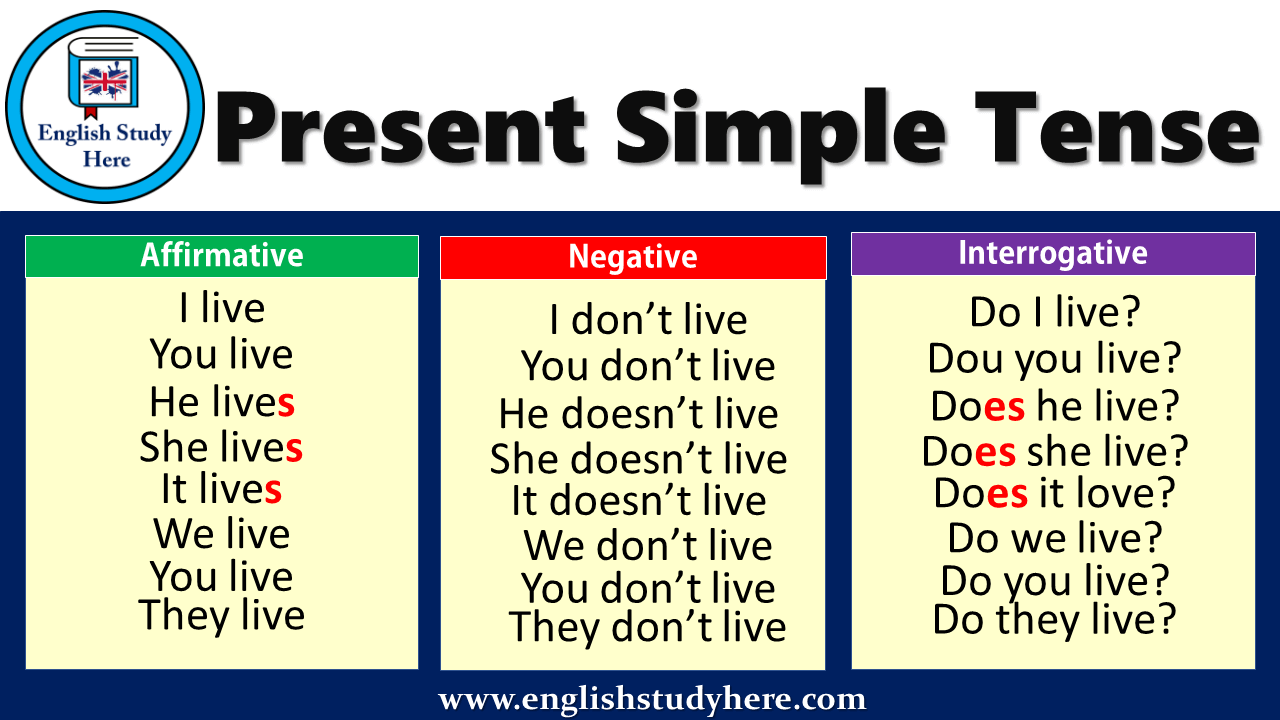
Present Simple Tense Affirmative, Negative Interrogative English
We have put down 50 simple present tense sentences (affirmative, negative, and interrogative sentences) for you. Simple Present Tense Sentences Affirmative Sentences. I need some time to complete this assignment. James likes swimming. I often talk to my friends about their jobs. He writes a diary regularly. A morning walk makes a man healthy.
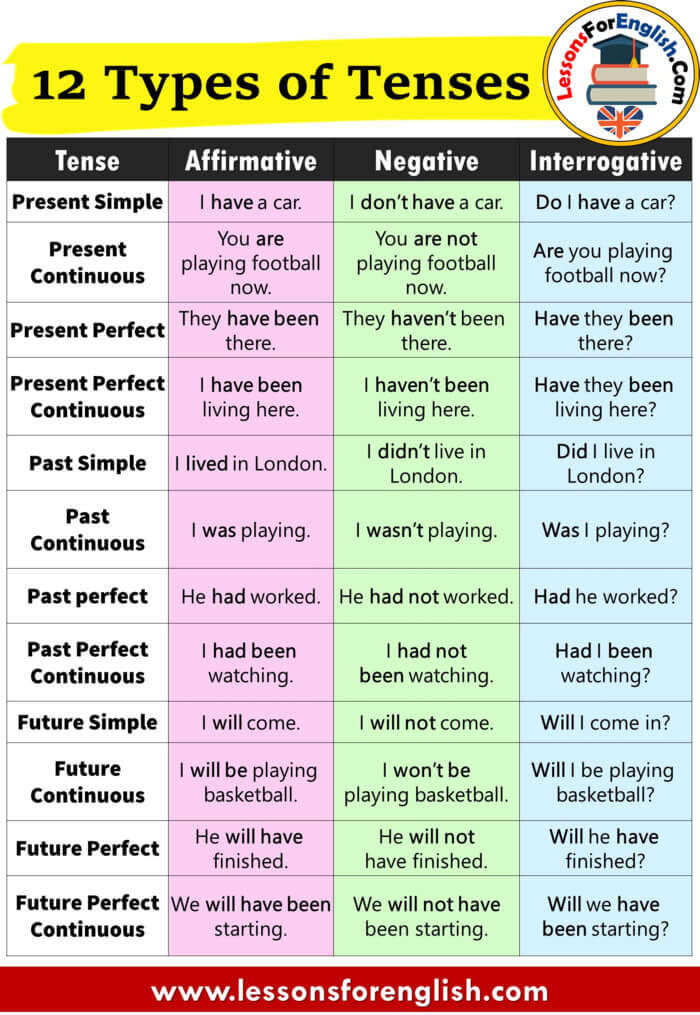
12 Types of Tenses, Affirmative, Negative and Question Forms Lessons
Present simple affirmative, negative and interrogative forms. Verb exercises. Index of contents. Present simple - exercises Negative forms. Affirmative, negative, questions 2; Affirmative, negative, questions 3; Present simple - quiz; Write sentences 1: present simple;

Affirmative, Negative, Interrogative Statements Grammar + Test
English verb exercises: to be present exercises esl: affirmative, negative and interrogative forms. Lower intermediate level. Simple present
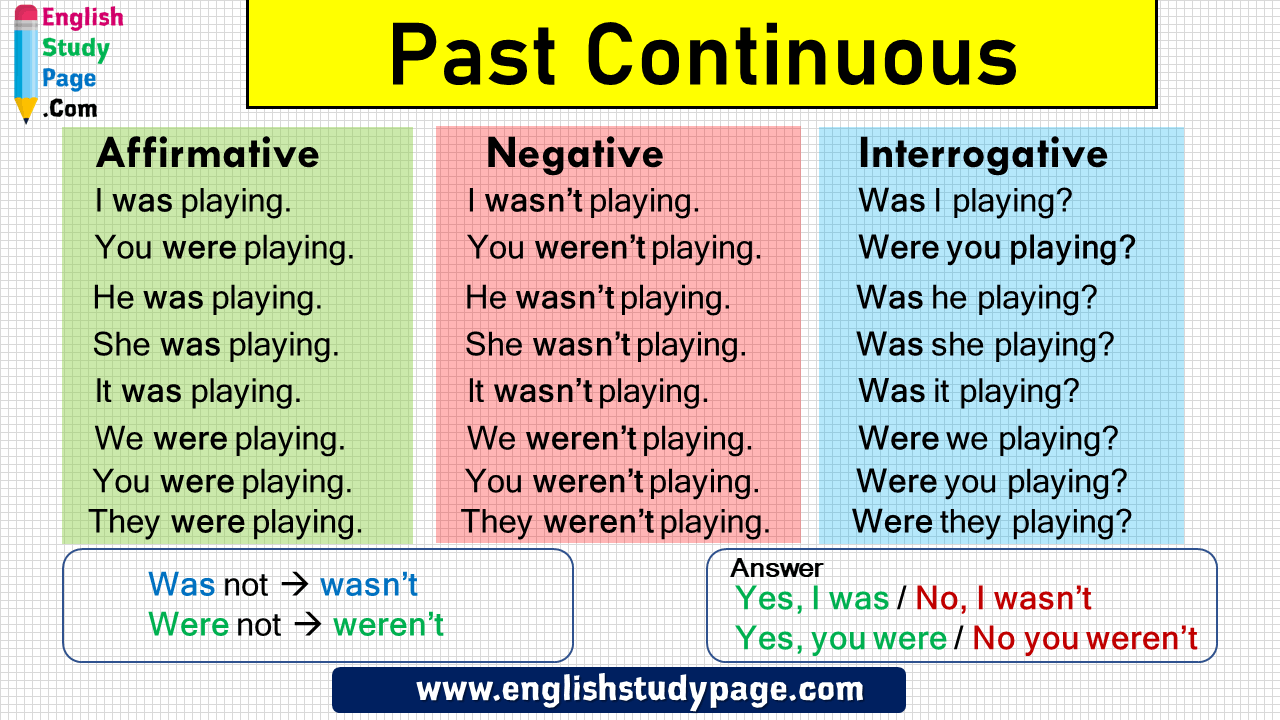
Past Continuous Tense, Affirmative, Negative and Interrogative
Verbs in English come in three main categories: the affirmative, the negative, and the interrogative. The affirmative = asserting that something is true or valid. The negative = a reply denying something. The interrogative = asking a question.. Here's an overview of how each category is structured for most verb tenses in the English language.
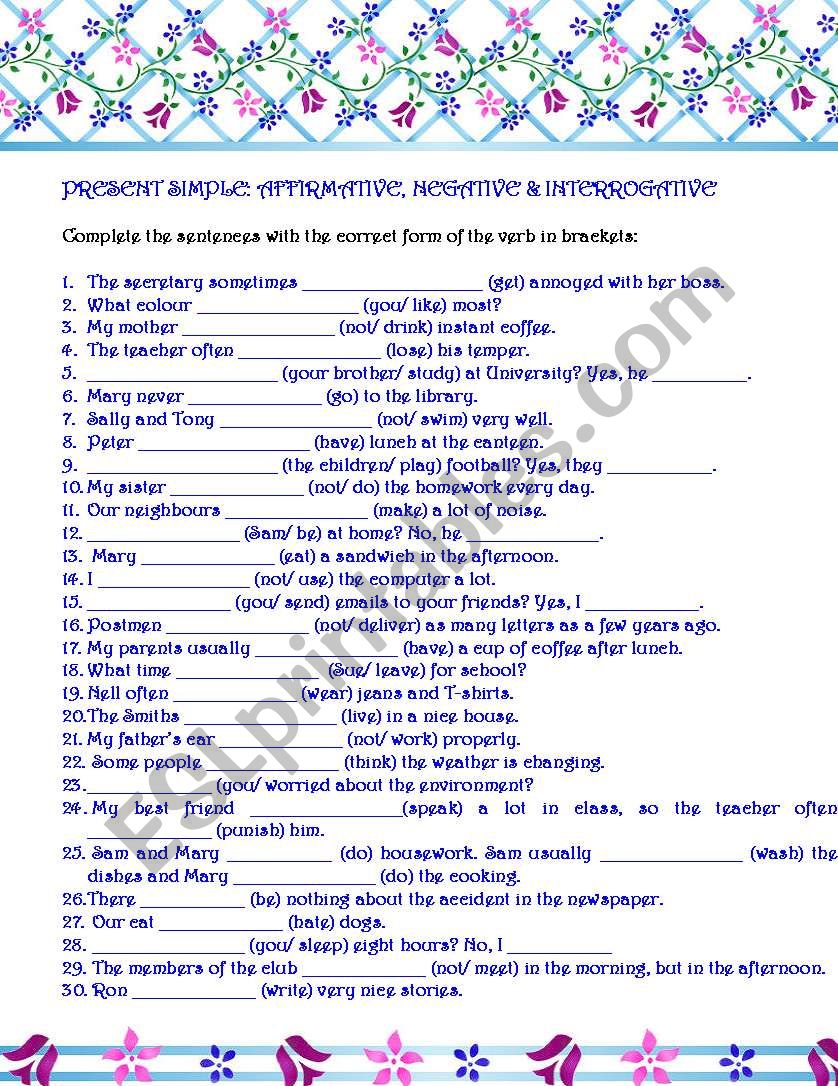
PRESENT SIMPLE AFFIRMATIVE, NEGATIVE & INTERROGATIVE ESL worksheet
Learning verb tenses affirmative negative and interrogative English grammar Verb tenses affirmative negative interrogative English grammar lesson. This lesson is a cheat sheet to help you understand a lot of the grammar tenses and how to use in simple sentences. The first part of the lesson explains what affirmative (positive) negative.
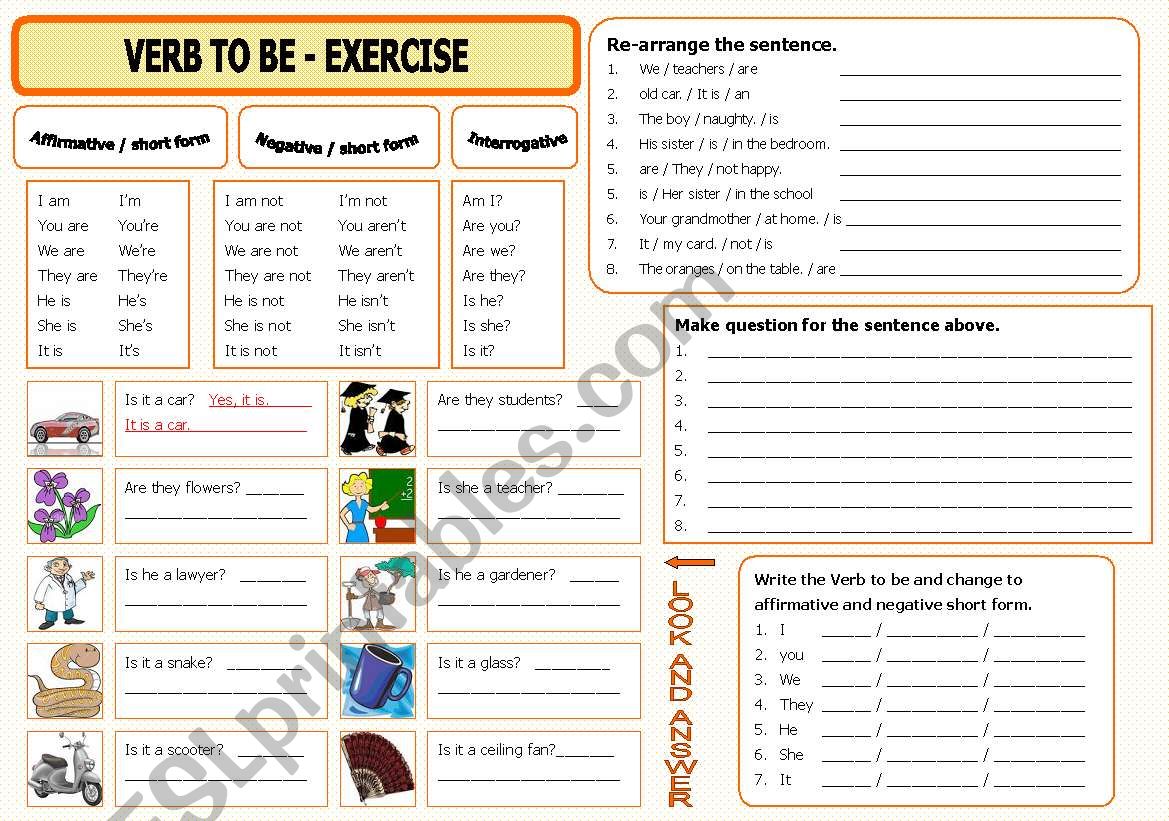
Verb to be Affirmative/Negative/Interrogative ESL worksheet by
Present Simple Tense Definition, Affirmative, Negative and Interrogative Sentences Present Simple Tense The Present Simple Tense is the most used tense in English and is a Tense that people use to describe things they always do. This Tense tells us how often something is done or whether it is done in daily life. The Present Simple Tense, which is used for routine tasks that are done.